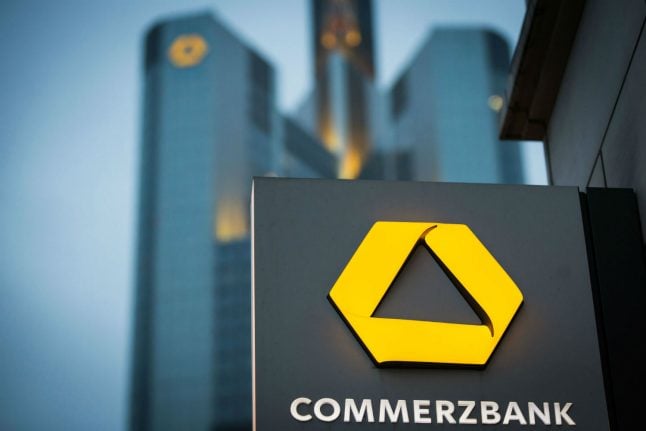On top of the job cuts — which bosses say will be partly offset by 2,000 new hires in other areas — Commerzbank also aims to sell its majority stake in Poland's mBank to bring in some of the cash needed for its plans.
Like other major European banks, Commerzbank has gone through successive rounds of restructuring as it battles headwinds like sector-wide overcapacity and low interest rates, announcing in 2016 it would shed 9,600 jobs in four years.
In recent months, rival Deutsche Bank has announced up to 20,000 job cuts, HSBC
4,000, and France's Societe Generale 1,600.
READ ALSO: Deutsche Bank could slash up to 20,000 jobs
Commerzbank will buy out the remaining third-party shareholders in subsidiary Comdirect, of which it already owns 82 percent.
The scheme has yet to be signed off by the bank's supervisory board, the lender added.
“With its new strategic programme, Commerzbank is enhancing the long-term sustainability of its business,” the Frankfurt-based firm said.
If approved by the supervisory board, its latest moves would cost around €1.6 billion.
Shares in Commerzbank were up 1.3 percent on the day, trading at €5.77
by around 3:30 pm in Frankfurt.
The stock has struggled to convince investors this year, falling to lows around €4.72 after reporting falling profits in the second quarter but gaining ground since then.
Deutsche Bank and Commerzbank have previously discussed a merger, an idea which was rejected by unions, saying it would only generate greater instability amid the turmoil both banks are already experiencing.
READ ALSO: '10,000 jobs in grave danger': Unions warm of Deutsche-Commerz merger



 Please whitelist us to continue reading.
Please whitelist us to continue reading.
Member comments